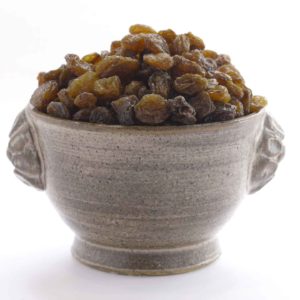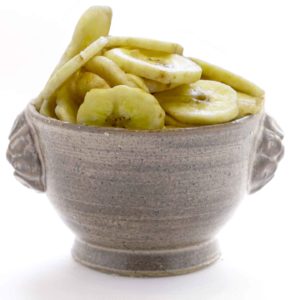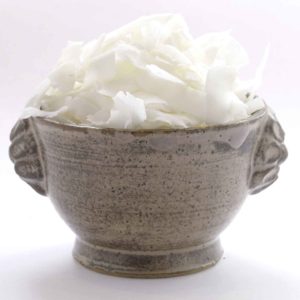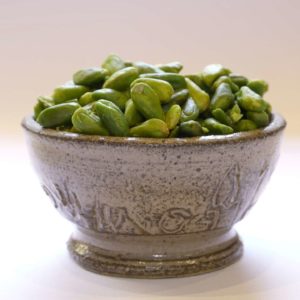0
- ONLINE GROCERY
- OUR HISTORY
- BLOG
- CONTACT
- MY ACCOUNT
- PRO
5,90 €30,60 € /kg
Cashew nuts are an asset in terms of diet, taste and cooking, as they can be used in sweet and/or savoury dishes without the addition of salt. Easy to nibble, cashews can be eaten as is, as a snack, to soothe the munchies, as an aperitif, plain or salted, mixed or not with other oilseeds and/or dried fruit.

Native to northeastern Brazil, the anarcade or cashew nut is the fruit of the cashew tree. Toxic when raw, they are delicious when dried in the shade, then roasted and shelled. Rich in vitamins and trace elements, cashews contain fatty acids that help lower blood cholesterol levels.
The star of the aperitif, cashews are a roasted dried fruit that goes beautifully with Sultan Izmir or Khorog grapes.
History
The cashew nut is the fruit of the cashew tree. Native to the Amazon basin (northeastern Brazil), it was consumed by the Brazilian natives, who used it for therapeutic purposes. In the 16th century, the Portuguese discovered the cashew tree and introduced it to their colonies in India and Africa. The tree subsequently spread to Asia. It wasn't until the 20th century, however, that trade in the nut became international.
The anarcadier starts producing fruit at around 5 years of age. A tree produces an average of 15 kg of fruit a year, and has an average lifespan of 20 to 30 years.
The true fruit (the cashew nut) is kidney-shaped and develops first, reaching its maximum size (3 to 4 cm). Then it's the peduncle's turn (the tree's false fruit) to grow into the cashew apple: a pear-shaped, juicy, edible apple, whose color at maturity can range from yellow to red.
During this phase, the nut beneath the false fruit dries out, shrinks and hardens. When ripe, the fruit detaches from the tree and falls to the ground, where it must be picked up very quickly to preserve all its qualities and prevent it from being attacked by pests or insects.
Cashew nut quality is determined mainly by size and color. The more ivory-white the seed, the better its quality.
Crunchy and refined, the Cashew nut, originating from Vietnam, is of excellent quality; it is a plain nut, with no added salt, and has not been flavored or deep-fried. They will delight your aperitifs and culinary preparations.
Consumption
For breakfast, add cashews to mueslis or cereals.
Whole, they can be used in recipes requiring long cooking times (curry, stewed vegetables, fish or meat stews) or in wok recipes (Chinese noodles, pork, chicken or shrimp woks with cashew nuts...).Crushed, it can be added to green, mixed or raw salads, sauces (chutneys, pesto, vinaigrette, béchamel, etc.), cereal bars or homemade chocolate bars, and sprinkled on pies, ice creams or sorbets, dairy products, etc.
When puréed, it can be transformed into burger sauce, vegetable cheese or pastry cream (replacing butter).
Tip: To make your own cashew purée, soak your cashews overnight. Drain and blend. Remove the water and blend again until you obtain a "pureed" texture. The resulting puree can be used in place of butter.
To make your own cashew milk, pour a cup of cashew nuts and 2 cups of water into the blender, and run the machine at high speed until you obtain your own milk. If you wish, you can sweeten with a little honey, agave syrup or Rapadura.
Properties
Introduce nuts (plain, toasted or not, with no added salt or fat) into your diet on a regular basis: a small handful a day (approx. 15-20g), depending on the composition of your meals. This quantity is equivalent to about one tablespoon of oil (lipid content).
We recommend it...
- anyone (pregnant or breastfeeding women, mobile or sedentary workers...): for all the minerals (copper, iron, zinc, manganese, calcium...) and vitamins that make it an ideal dietary supplement, it helps cover the body's needs and helps prevent cardiovascular disease(1) , type 2 diabetes(2) and regulate LDL levels (bad cholesterol)(3) ;
- athletes: it's a good source of protein, magnesium, potassium, vitamins B (B1, B2, B3, B5, B6, B9), E and K, and provides the energy needed for physical effort;
- children, teenagers and students: for the phosphorus it contains, which acts on physical and intellectual effort (excellent memory stimulant);
- the elderly: it is a very interesting energy resource, as when incorporated in small quantities, it increases the calorie content of preparations (e.g. mixed salads) and contributes to protein intake;
- vegetarians, vegans/vegetarians: for its protein content (it is one of the richest oilseeds in terms of protein), lipids, carbohydrates, fiber, vitamins and minerals...
Recommendations
Cashew nuts should be part of a varied, balanced diet.
However, this product is not recommended in the event of :
- food allergies (nuts),
- renal insufficiency,
- intestinal disorders.
Do not give to children under 3 years of age.
(1) Hu FB, Stampfer MJ. Nut consumption and risk of coronary heart disease: a review of epidemiologic evidence. Curr Atheroscler Rep 1999 November; 1(3):204-9.
(2) Lovejoy JC. The impact of nuts on diabetes and diabetes risk. Curr Diab Rep 2005 October;5(5):379-84.
(3) Nicklas TA, Hampl JS, et al. Monounsaturated fatty acid intake by children and adults: temporal trends and demographic differences. Nutr Rev 2004 April;62(4):132-41.
Botany: Anacardium occidentale
Origin : Ivory Coast
Ingredients : 100% ORGANIC whole cashew nuts
Shelf life : 200 days guaranteed
Quality : ORGANIC
Other names : anarcade
Nutritional value of whole cashew nuts
(Per 100 g)
Protein
Carbohydrates
Sugars
Fat
Saturated fatty acids
Salt
| Weight | 50 g |
|---|---|
| Weight | 100g pouch, 250g pouch, 500g pouch, 1000g pouch |
| DLUO | |
| Continent-Country | Africa |



